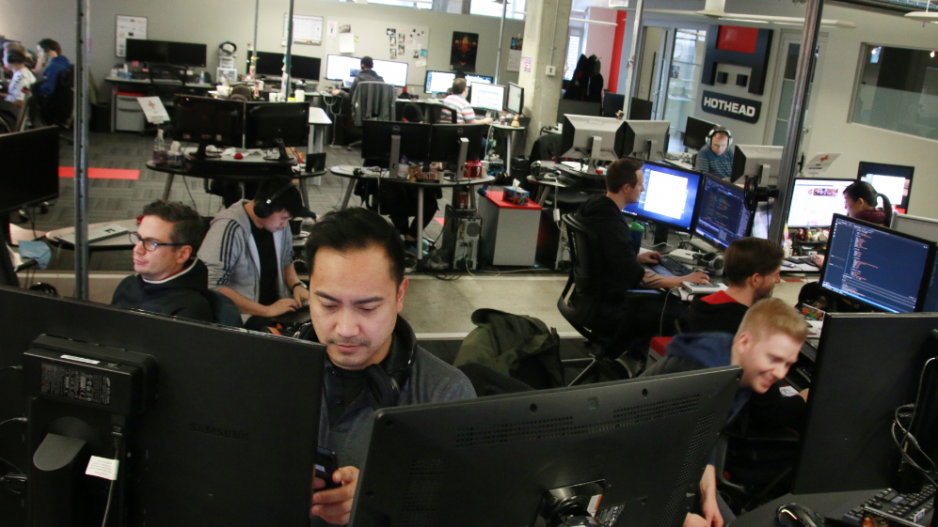BC’s four largest game developers – Electronic Arts Inc. (Nasdaq:EA), the Coalition, Relic Entertainment and Kabam Inc. – share a common advantage once their titles are ready for play.
“The non-independent guys, they’re typically owned by bigger publishers,” says Gregan Dunn, director of publishing at Vancouver-based Hothead Games Inc.
“Automatically by scale, being part of a larger organization, [they] can rely on their parent company to publish the games that they create.”
Hothead Games, B.C.’s largest independent studio and fifth largest overall, is attempting to level the field for other indie developers.
In January it launched a new publishing division, giving third-party developers access to Hothead Games’ publishing infrastructure in exchange for a revenue-sharing agreement.
“There’s only so many games a year that our studio itself can develop,” Dunn said.
“We felt like our central [publishing] teams could handle some additional games and we could offer up this expertise that we’ve built up in house.”
Upon reaching a revenue-sharing agreement with an indie developer, Hothead will offer access to its marketing team, analytics, data scientists and engineers and internal quality assurance team.
“Hothead’s new coming into this scene. I think they’re going to have to give some very, very favourable deals to the developers to begin with, with really favourable revenue splits and guaranteed [marketing opportunities],” said Derek Johnson, a developer who left Relic Entertainment to found Thorium Entertainment in Vancouver in 2015.
His three-person operation aims to launch its first game, UnderMine, later this year, and it has been looking to partner with publishers.
Johnson said Hothead has a solid reputation in the city and its business model could be sustainable for many independent studios on the hunt for a publisher.
But he cautioned some developers have been “taken to the cleaners” by not performing due diligence when shopping titles to publishers.
“If we had someone who could take some of the burden of the marketing off of our shoulders, that would be wonderful. But finding that person who’s not just going to take 50% of your revenue, maybe with questionable results, [is challenging],” he said.
“There needs to be some accountability there. If they’re going to say, ‘Oh, we’re going to tweet about you once a week and send you to these three conferences,’ but then you don’t actually measure how many sales that turned into at the end, it’s really hard to judge whether you got your money’s worth or not from that publishing arrangement.”
Meanwhile, Hothead will face the challenge of following firmly entrenched incumbents into the indie game-publishing arena, including Devolver Digital and Double Fine Presents.
Both have been publishing at least five years and have gained attention with titles such as Serious Sam and Manual Samuel.
But Hothead has been cultivating its own credentials by self-publishing mobile games such as Hero Hunters and Kill Shot.
Dunn estimated about 40% of Hothead’s 140 workers are focused on the publishing side of the business.
“And many studios don’t have the luxury of being able to afford that support structure that’s necessary to publish a game,” he said.
“Once they’ve created that great game, sure, everyone can go to iTunes and upload their game, but they need to have the skill set, the expertise to actually get the attention that game needs and support that game in the long term to make it successful. And it takes a lot of bandwidth.”




